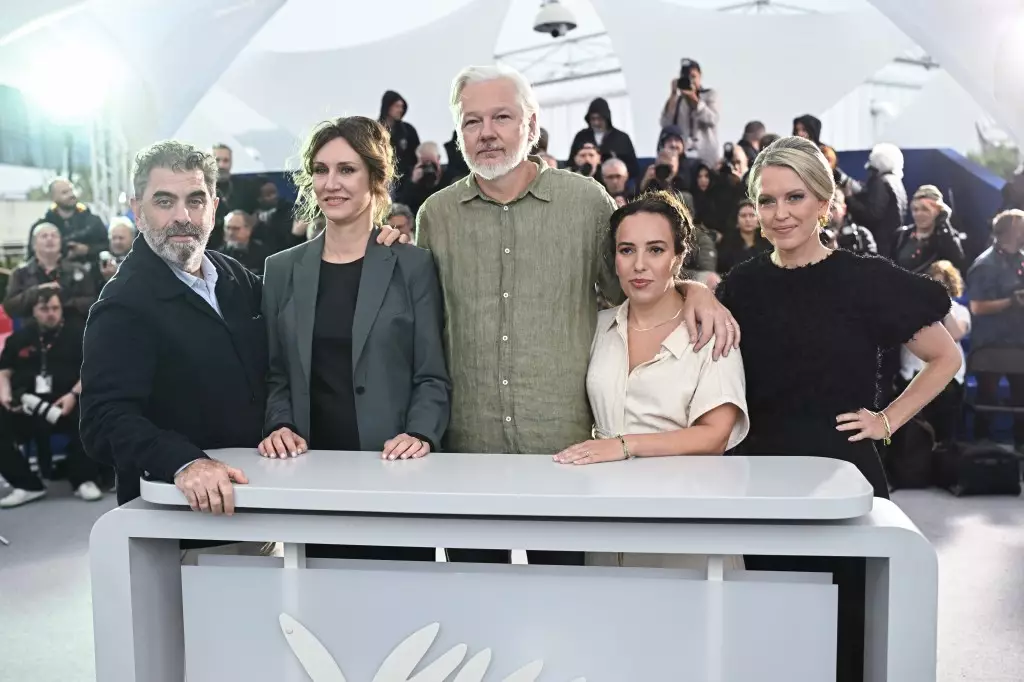In an era that increasingly values secrecy over transparency, the case of Julian Assange and WikiLeaks stands as a glaring indictment of governmental behavior. Once a symbol of whistleblowing courage, WikiLeaks has not published anything new for over five years, signaling a significant setback in the battle for openness. Documentarian Eugene Jarecki, at the Cannes Film Festival, passionately argues that this lapse represents not merely a failure for Assange, but a broader failure for democracy itself. He insists that the relentless campaign by various U.S. administrations to suppress Assange has had dire consequences for the public’s right to know. The very essence of democracy—freedom of information—hangs precariously in the balance, and it’s vital to explore the ramifications of this chilling narrative.
Cost of Suppressing a Voice
Jarecki’s documentary, *The Six Billion Dollar Man*, sheds light on the astonishing amount allocated by the U.S. government to dismantle Assange and his organization. With an estimated $6 billion at stake—far more than conventional legal fees—the funds predominantly stemmed from maneuvering diplomatic aid. Ecuador, driven into a corner by economic need, found itself at the nexus of international diplomacy and coercive U.S. policy. What Jarecki highlights is not just the personal cost inflicted on Assange but a broader commentary about how powerful nations employ financial measures to undermine democratically elected governments. This relentless drive to silence dissent suggests a systemic problem in the global balance of power, amplified by America’s ability to use economic levers in its foreign policy arsenal.
Manipulating the System: A Conspiracy of Silence
What does it mean when a government employs tactics akin to economic robbery to remove a whistleblower? It suggests an alarming trend where financial incentives overshadow ethical journalism. The challenge that lies ahead is who will hold these institutions accountable when they act with impunity. America, professing to be a bastion of freedom, resorts to stifling voices that seek to unveil hidden truths, raising questions about its moral standing. In the grand narrative of Assange, we see not just the journey of one man but the disturbing lengths to which authorities will go to quash transparency. Jarecki’s film serves as both a tribute to Assange’s resolve and a critical lens focused on how the suppression of information runs counter to the fundamental beliefs of a democratic society.
Public Perception and the Role of Journalism
As Assange tragically experiences a disillusionment with the media landscape, public support for whistleblowers remains fractured. The narrative that Assange has been painted as either a traitor or a martyr speaks volumes about society’s split perception surrounding journalism versus nationalism. It reveals a pressing societal responsibility: the need to champion the protection of whistleblowers who reveal uncomfortable truths. Jarecki’s work conveys an urgent call to arms for aspiring journalists and advocates of freedom. In a world where information can manipulate public opinion, the role of an informed citizenry remains paramount. Mediated truths, crafted in the shadows, only serve to disenfranchise those who rely on transparency for empowerment.
The Implications for Freedom and Democracy
The fallout from the Assange saga touches on our collective understanding of freedom and democracy. As we witness governments employing both soft and hard power to silence dissenting voices, it becomes evident that the health of democracy cannot flourish in the absence of transparency. The chilling message delivered by Assange’s ordeal warns against prima facie acceptances of authority. Jarecki’s film resounds in its authenticity; it reflects the dire implications that arise when secretive machinations go unchecked. Drawing attention to the perils of compromising ethical standards in journalism provides a clarion call to propel public awareness. The question now looms: will society continue to allow leaders to operate above the law, or will we demand accountability in the face of such egregious abuses?
Through *The Six Billion Dollar Man*, Jarecki does not merely tell the story of Julian Assange; he unearths profound truths about the cost of silence and the value of open dialogue. As we stand on the precipice between secrecy and the call for accountability, the echoes of Assange’s fight serve as reminders that transparency should never be a casualty in the pursuit of power.


Leave a Reply